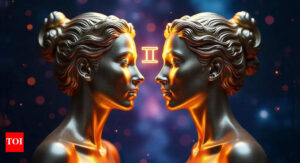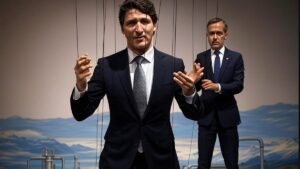AI Faces Challenges in Forecasting Next Pope Due to Vatican Secrecy

AI’s Challenge in Forecasting the Next Pope
The Vatican is known for its secrecy and traditions, which makes it particularly challenging for artificial intelligence (AI) systems to predict who the next pope will be. With a long-standing history of enigmatic papal selections, the intricate process leaps beyond mere data analysis and into the realm of human emotion, spirituality, and influence.
Understanding the Papal Selection Process
The Conclave
The election of a new pope occurs during a gathering known as the conclave. Here are some key points about this process:
- Electoral Body: The conclave consists of cardinals under the age of 80.
- Voting Process: After a series of votes, if a cardinal secures a two-thirds majority, he becomes the new pope.
- Secrecy: Votes and discussions are kept confidential, preventing outside influence and speculation.
Influence of Tradition and Politics
The selection of a pope isn’t solely based on popular opinion or prior predictions. Several factors contribute to the decision:
- Personal Qualities: The electors consider the spiritual leadership and moral integrity of candidates.
- Cultural Background: Candidates vary in their geographical and cultural contexts, impacting their appeal and suitability.
- Church Dynamics: Internal church politics and the strategic needs of the Catholic Church influence decisions.
The Limitations of AI in Predicting Papal Elections
Data Limitations
While AI excels at processing vast datasets to identify patterns, it struggles in understanding the nuanced nature of the papal election. Key limitations include:
- Lack of Quantifiable Data: AI relies on numerical data, but many aspects of the pope’s election are qualitative and subjective.
- Understanding Nuance: AI lacks the ability to interpret the complex emotions and motivations of cardinals during the voting process.
The Role of Unpredictability
The papal election is inherently unpredictable. Historical precedents show that last-minute choices or surprising candidates can emerge, complicating any predictive efforts. For example, there are instances where cardinals previously deemed unlikely to be elected rose unexpectedly in the ranks.
Why Human Insight Remains Crucial
The Human Element
Human intuition plays a significant role in the election of a new pope. Cardinals weigh their options based on personal experience, relationships, and predictions that cannot be quantified. This human insight is difficult for AI to replicate effectively.
Faith and Spiritual Guidance
The selection process is deeply rooted in faith and spirituality. Cardinals often engage in prayer and reflection to seek divine guidance. This aspect is beyond AI’s capabilities, as it cannot grasp the emotional and spiritual dimensions that affect decision-making.
Future Implications for Predictive Technologies
As AI continues to evolve, it may eventually incorporate more sophisticated algorithms to forecast events influenced by human behavior. However, understanding the convoluted dynamics of the Catholic Church’s inner workings will still present challenges. As new technologies emerge, the integration of human insights may become pivotal in refining predictive models, allowing them to better account for the unpredictability present within religious leadership scenarios.
By acknowledging the unique characteristics and challenges of this process, one can appreciate the intricate layers involved in the selection of a new pope, which continue to baffle even the most advanced AI systems.





